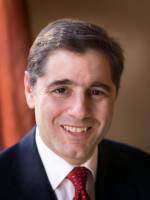Broadcasters take FCC’s white spaces decision to court

The NAB and Association for Maximum Service Television have jointly filed a petition with the U.S. District Court of Appeals for the D.C. Circuit to stop the use of white space spectrum due to begin on March 19.
The broadcasters, in a petition filed on Feb. 27, argue that unlicensed devices using the spectrum will interfere with DTV transmissions, and the FCC’s decision last Nov. 14 allowing the use of the spectrum by Internet service providers should be voided. The commission’s decision, according to the broadcasters, was “arbitrary, capricious, and otherwise not in accordance with the law.”
However, the broadcasters never specified what was illegal about the FCC’s decision in their petition. They argued the decision would “have a direct adverse impact on MSTV’s and NAB’s members because it will allow harmful interference with reception of their broadcast signals.”
The FCC’s unanimous decision allowed unlicensed devices, including laptops, mobile phones and smart radios, to share the spectrum also used by digital TV stations. The spectrum is expected to open a new wave of low-cost mobile Internet access throughout the nation.
The commission ordered several safeguards to protect broadcasters from interference. Only devices that have geolocation capability would be used in the beginning, with remote sensing technology allowed under stricter conditions.
For devices that use sensing technologies only, the FCC’s conditions include additional testing, power limits, a certification process, and public comment on that process. The FCC decision would have to approve specific remote sensing devices before public use could begin.
“The broadcasters continued opposition to this revolutionary technology is disappointing, but certainly not surprising. For decades, their policy has been to stifle innovation at all costs and ask questions later and this is no different,” said the White Spaces Alliance, made up of technology companies including Google, Microsoft, Motorola, Dell and others.
The professional video industry's #1 source for news, trends and product and tech information. Sign up below.
“White space technology works,” the group added. “It is safe, and the Federal Communications Commission knows better than anyone the steps that must be taken to ensure that continues to be the case. A legal challenge to the process and the Commission’s expertise in this area is just another in a long list of ill advised and futile delay tactics.”
A separate legal action may come from Broadway theater producers and sports leagues, which use wireless microphones that employ the same white space spectrum. They may soon be sharing the spectrum with unlicensed devices and fought the FCC due to fear of interference during live productions and sporting events. These groups were expected to file any legal actions in the Second Circuit Court of Appeals in New York.
The white spaces dispute began under Republican FCC chairman Kevin Martin. Now, President Obama has just nominated Julius Genachowski as his new FCC chairman. A technology adviser to the Democratic presidential campaign and personal friend to the president, Genachowski has not yet taken a public position on the white spaces issue.
While the matter is almost certain to come up in Genachowski’s congressional hearing for confirmation, his opinion is expected to have little or no effect on the broadcaster’s court case.
